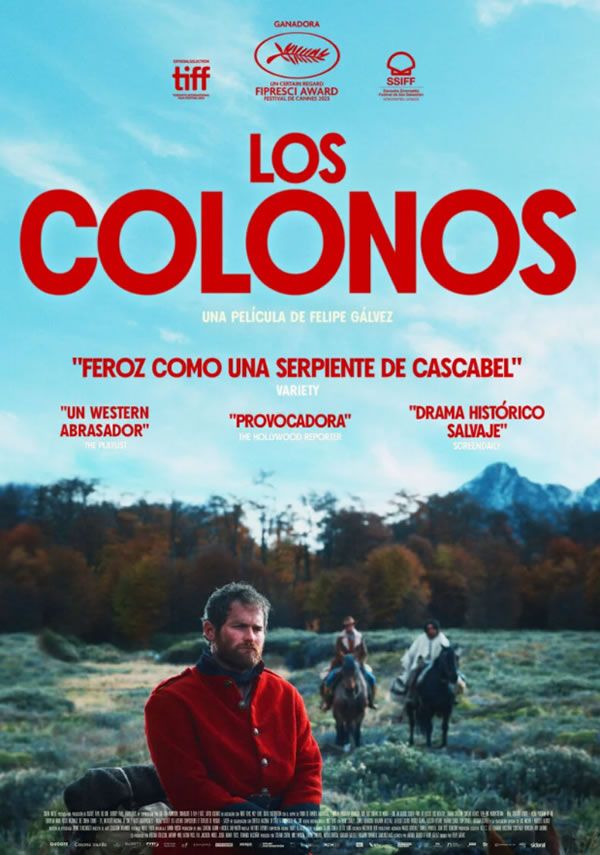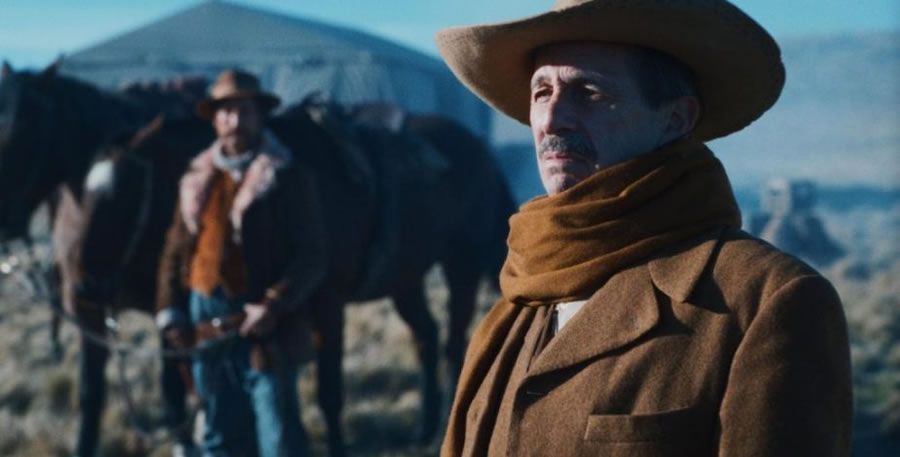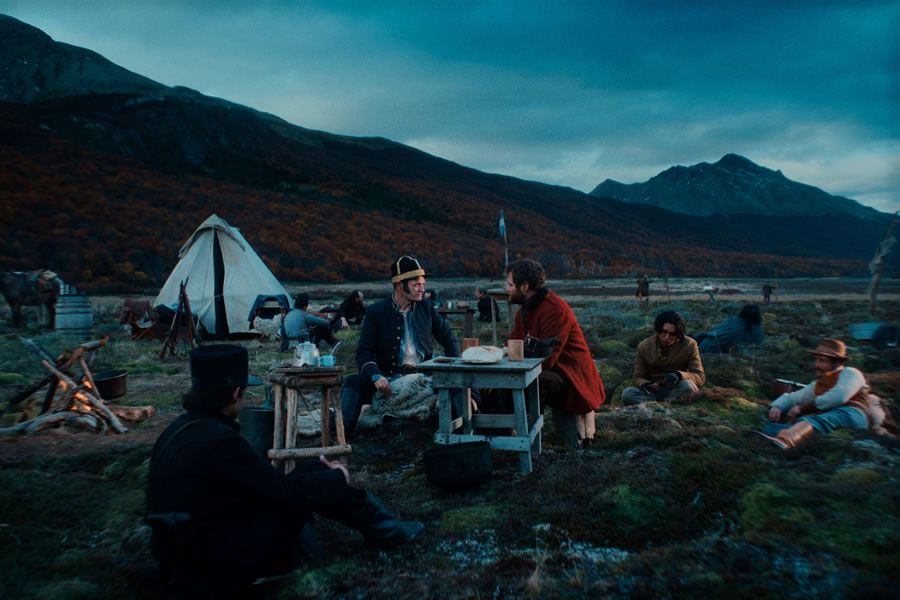10/05/2023
Review of 'The Settlers' by Felipe Gálvez: Western, Black Humor, and Social Critique
By Daniel Ruiz, (Twitter: @tatoruiz), accredited by CineVista at the 2023 Lima Film Festival
Persisting in Memory
Chilean cinema has been exploring its fractured soul through the exercise of memory. Its most recent conflict has not found reconciliation even within these circles, and Felipe Gálvez, with his debut film, delves into the depths to continue probing a wound, this time a more distant and forgotten one, overlooked and minimized: the annihilation of the Selk'nam people. Gálvez, who has worked as an editor for 15 years ("In the Grayscale," "You'll Never Be Alone," "Princesita"), makes his directorial debut (in feature films) with "The Settlers," an epic western surrounded by a renowned cast and a team of personalities that includes Mariano Llinás in the script and also in front of the camera.
In the very early years of the past century, in Tierra del Fuego, a businessman requires a clear path. The deserted and cold landscape serves his economic interests. He has no idea about his surroundings, but he wants them clean. "The problem is the Indians. They eat the herds," says this businessman named José Menéndez, played with caustic precision by the ever-present Alfredo Castro in Chilean cinema. His goal is to be achieved through a group of men who must traverse this entire landscape. A group led by an Englishman, Lieutenant McLennan (Mark Stanley), Bill, a bloodthirsty Texan mercenary (Benjamin Westfall), recommended (and bought) by Menéndez himself, and a mixed-race laborer named Segundo (Camilo Arancibia), chosen by the lieutenant for his sharpshooting skills but frowned upon by Menéndez, who distrusts his indigenous features.

The film begins with this journey in which the three men fail to find common ground. There is mistrust. Their testosterone-laden conflict is exacerbated by the cold. Felipe Gálvez revels in these deserts to capture fascinating images and goes beyond mere aesthetics. The cold deserts and spectacular landscapes of this Chilean region serve as a canvas to address the futility of the men's work and their ignorance of the territory.
Gálvez also finds an opportunity to mock the image of men who don't know how to assert their masculinity and resort only to violence or threats with their weapons. He reinterprets the presence of the Western in contemporary times with irony and subtle humor: men acting like children, throwing punches and threats. Amidst it all, there's another mockery: the portrayal of the church, so troubled in today's Chile, represented as it should be (and must be). I won't say more, but "The Settlers" doesn't stop there. It has a strong political imprint and a critical stance toward the discourse that many generations grew up with. Felipe Gálvez seeks to explicitly expose the annihilation that has been ignored. From dark humor, it transitions to a more brutal narrative of extermination, immersing itself in a tone of catastrophe and pure action.

If we have to address and put the issue of extermination on the table, we must do it thoroughly, as an average Chilean would say. Gálvez transforms his debut work and gives the audience the excuse not to let go of it. And if we need to return to dark humor, it's time to do so towards the end of the second part and throughout the third, introducing the complex figure of Vicuña (here, Chileans will have to help me confirm if it is indeed Benjamin Vicuña Mackenna), many years after the story's beginning and in the lands of Chiloé.
"The Settlers" is one of those films that doesn't confine itself to a single genre and has a distinct authorial stamp that includes the ability to entertain, critique contemporary society, and find the perfect space for open, intelligent, and biting humor. It's an absolutely unforgettable film that deserves multiple viewings because it encapsulates a range of discourses that remain highly relevant today. Discourse doesn't have to be unpleasant, no matter how uncomfortable it may be. The director knows that in the region (Latin America), there are very few opportunities to make spectacular and provocative cinema, and he pours everything that both troubles and amazes him into this debut in the most efficient way possible.

Hopefully, his work will continue to flourish, allowing him to create more monumental pieces. Watching his work suggests that he possesses the art of storytelling and precise execution through the camera. "The Settlers" is a film that captivates and surprises. It's somewhat akin to what happens to Segundo, the mixed-race character who, at one point, encounters a Selk'nam native and becomes fascinated. An extraordinary scene like its final scene, which is also iconic, can be used as a reminder that the road to hell is paved with good intentions and some truly ruthless rulers.
"The Settlers" premiered at Cannes, receiving the FIPRESCI prize in the "Un Certain Regard" section, and it is Chile's choice for representation at the Oscars.
Technical Details
-
Director: Felipe Gálvez
-
Screenplay: Felipe Gálvez
-
Duration: 97 minutes
-
Genre: Western, historical drama
-
Produced by: Giancarlo Nasi
-
Cast: Camilo Arancibia, Mark Stanley, Benjamin Westfall, Alfredo Castro, Adriana Stuven, Sam Spruell, Marcelo Alonso, Mishel Guaña
-
Editing: Mattieu Taponier
-
Music: Harry Allouche
-
Cinematography: Simone D-Arcangelo
-
Countries: Chile, Argentina, United Kingdom, Taiwan, Germany, Sweden, France, Denmark
-
Year: 2023
<< Go to Spanish version
